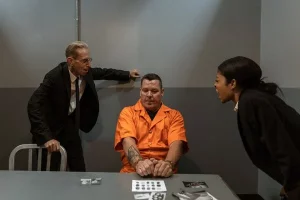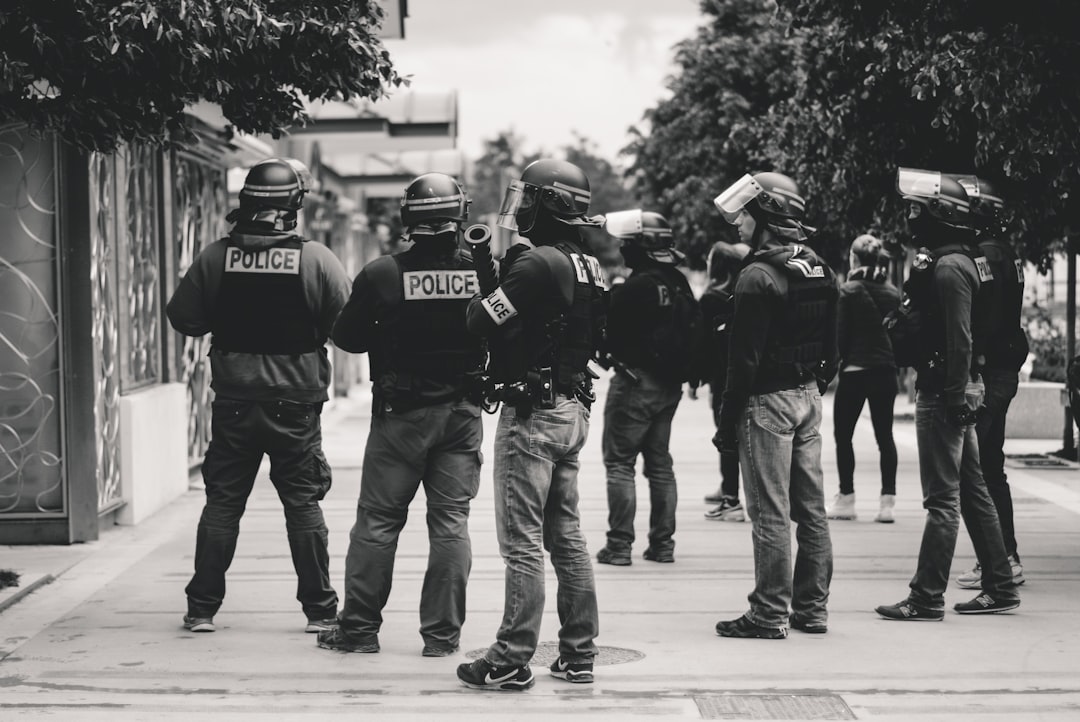Certificate in Criminal Justice Career Jobs & Programs
Learn everything you need to know about getting a certificate in criminal justice .
Get details on the curriculum, and programs with 100% online coursework.
Table of Contents
Watch: The Most In-Demand CJ Career Jobs
Best 8 Certificate in Criminal Justice Colleges/Programs
- Michigan State University (MSU)
- Boston University
- Capella University
- Strayer University
- University of Phoenix
- Ball State University
- Colorado Christian University
- Ashworth College
Course Curriculum
- Foundations of Justice
- Introduction to Criminal Justice
- Introduction to Policing
- Criminal Justice Ethics
- Foundations in Homeland Security
- Issues in Criminal Justice
- Emergency Preparedness and Homeland Security
- Terrorism
Best Criminal Justice Certificate Career Jobs
*Simply getting a certificate in criminal justice is just the tip of the iceberg, and doesn’t guarantee a job in CJ.
You must pass all the phases of the selection process, and additional training requirements.
- Police Officer
- Deputy Sheriff
- State Trooper
- Correctional Officer
- Juvenile Detention Officer
- Security Guard
- Dog Handler
- Correctional Response Team
Where to Find Criminal Justice Jobs
Look For Law Enforcement Jobs in Your Area
Frequently Asked Questions About Getting a Certificate in Criminal Justice
The Certificate in Criminal Justice will provide you with the fundamentals of the criminal justice system, corrections, homeland security, and criminal behavior and policing. Topics of study include an introduction to criminal justice, juvenile justice, policing, and corrections.
Can I get a certificate in criminal justice?
A certificate program is the shortest route to getting an education in this subject. Therefore, if you want to get an idea of what the criminal justice field is like without committing to the time and cost that it takes to earn a full degree, a certificate might be the right option for you. Certificate programs tend to be good choices for working adults who do not have time to halt their careers entirely in order to go back to school.
Both graduate and undergraduate certificates are available, so you don’t have to worry if you do not have a background in criminal justice. In addition, you can earn your certificate at traditional brick-and-mortar or online schools.
What kinds of certificates can I earn?
You have a couple of options when it comes to earning a certificate. Both undergraduate and graduate certificates are available, and the 1 you should get depends on how much collegiate experience you have.
If you do not already have a bachelors degree, you should earn an undergraduate certificate. This will provide you with an overview of the fundamental principles. But you should be aware that, although the undergraduate certificate introduces you to the subject, it does not prepare you to work in this field. Undergraduate certificates are also useful if you decide later to earn a criminal justice associate degree online or an online criminal justice bachelor degree because you can often transfer your credits. Of course, you can pursue both of those degrees through traditional programs, too.
On the other hand, you are eligible to apply for a graduate certificate in criminal justice if you have already earned a bachelors degree in any subject. This level of certificate offers graduate classes. Because of the advanced level of study, the graduate certificate is the best option if you are already a criminal justice professional and you want more education in order to advance your career.
How long does it take to earn a criminal justice certificate?
It takes longer to earn a graduate certificate than an undergraduate certificate. The amount of time that it takes to earn a top criminal justice certificate can also vary according to the length and depth of your program. Normally, undergraduate certificates require students to complete about 12 credits. Therefore, these certificate programs can be completed in 6 months to a year. On the other hand, you have to complete 15 to 18 credits to finish a graduate certificate. Students can normally complete graduate certificate programs in approximately 1 year of full-time study.
What classes will I take in my criminal justice undergraduate certificate program?
Whether you choose to earn your undergraduate certificate online or in a classroom, you will take introductory classes in the foundations of the field. Depending on the school you go to, your classes may vary. However, you are likely to take courses about law enforcement, the operation of correctional facilities and the role of the courts system in the criminal justice process.
What classes will I take in my criminal justice graduate certificate program?
In most cases, graduate certificates have a particular focus, like criminal justice administration, forensic science or criminology. Therefore, in the best certificate programs, you will take classes about public policy, policing, corrections and research methods in addition to classes in your area of focus.
Can I earn my certificate in criminal justice online?
Although online education is not recommended for some degrees, there are no significant drawbacks to earning an online criminal justice certificate. At the certificate level, whether you earn an undergraduate or graduate certificate, all of your classes will be based in theory rather than focused on teaching you practical skills. Therefore, the online learning environment will not negatively impact your education.
What kinds of jobs can I get with a certificate?
If you are earning a certificate to enhance your resume, you should be getting a graduate certificate. However, a graduate certificate alone will not qualify you to work in criminal justice. These credentials are most valuable in combination with a bachelors degree in a related subject like sociology or forensic science.
Graduate certificates can qualify you for legal assisting jobs in a legal office or to work in a correctional facility like a jail. And if your certificate is in a focus area like administrative criminal justice, you may be able to use your certificate to earn a promotion in your current position.
If you are interested in obtaining an undergraduate certificate, you should be aware that it will not prepare you for any jobs in the field. However, it can serve as a useful introduction to the field and you can transfer your credits into a bachelors degree program.
What it Takes to Earn a Certificate in Criminal Justice
Do I need to earn a certification to start working in the field?
After completing your academic education, you may wish to earn professional certifications. Although you do not need to earn certifications in order to find work in this field, you may find that they enhance your resume and make you a more appealing candidate for certain criminal justice jobs. And if you already have a job that you like, earning 1 or more certifications can help you to secure a promotion and may increase your criminal justice salary.
Before you enroll in any certification programs, you need to be aware of the difference between professional certification and academic certificate programs. These types of credentials can be easily confused, but they are very different. Academic certificates are offered by colleges and universities after students have taken a number of courses in a given concentration. It usually takes 1 to 2 semesters to earn these certificates.
On the other hand, certification programs are offered by professional organizations. These organizations verify that a person has a particular skill within their field. Usually, you have to pay a fee and pass an exam in order to earn professional certifications.
Finally, you should know that licensing is separate from certification. While criminal justice certification consists of voluntary credentials that you can earn for the sake of professional development, licenses are mandated by the state where you work. For example, some professionals, like lawyers, must have a license to practice law.
What organizations offer certification?
Below are a few examples of some common professions in this field with links to the most prominent criminal justice certification programs in each field.
Lawyers in all 50 states must pass a bar exam before they can be licensed to practice law. The bar exam is a multi-day test that they take after graduating from law school. It is regulated and administered by the American Bar Association (ABA). You can also earn up to 14 accredited specialized legal certifications that have been approved by the ABA. For more information, you can read about the requirements for these credentials in the ABA’s Concise Guide to Lawyer Specialty Certification.
Paralegals are not required to be certified to find a job. However, they can seek certification from national organizations to become more competitive on the job market. Some of the prominent organizations that offer paralegal certification are the Association of Legal Assistants (NALA) and the National Federation of Paralegal Associations (NFPA). These organizations require you to pay a fee and take a test to earn your certification.
You can also earn a paralegal certification through the American Alliance of Paralegals, Inc.(AAPI). Unlike the other paralegal certification organizations, this certification is based on work experience and your education instead of an exam.
Court reporters can also earn special certification through the National Court Reporters Association (NCRA). As of 2012, this organization offered 10 different certifications for court reporters.
Police certifications are handled by individual states, so you should check with your state’s police training commission to find out about the standards and requirements for police in your area. Some of the certifications that you can earn in this field include K9 certification, police instructor certification and peace officer certification. Police and other investigators can also obtain certification in forensics through the American College of Forensic Examiners International” and the American Board of Criminalistics.















